Waste Reducing
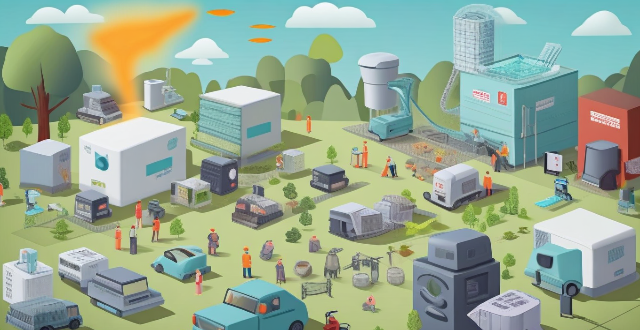
How does proper waste management aid in saving energy and reducing pollution ?
Proper waste management is crucial for conserving energy and reducing pollution. It involves strategies like composting organic waste to reduce methane emissions, enhancing recycling to save energy in manufacturing new products, preventing environmental pollution through proper disposal, promoting sustainable practices like reduce, reuse, and recycle, and supporting the circular economy model. By adopting these measures, we can move towards a more sustainable future that conserves resources and protects our planet.
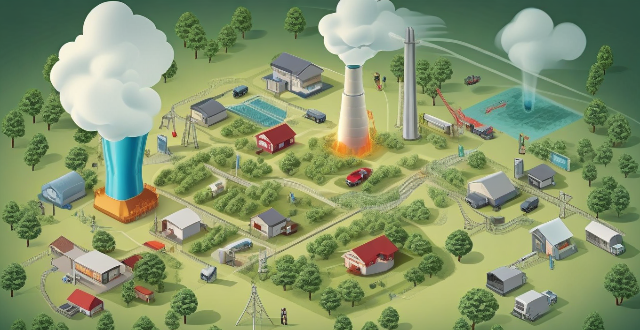
What is the relationship between waste reduction and energy conservation ?
The article discusses the relationship between waste reduction and energy conservation, highlighting their importance in promoting sustainable development. Waste reduction strategies such as recycling, composting, reusing materials, and reducing packaging conserve natural resources, reduce landfill space, and lower greenhouse gas emissions. Energy conservation measures like using energy-efficient appliances, improving insulation, and promoting renewable energy sources lead to lower energy costs, reduced greenhouse gas emissions, and promote sustainable development. The practices are interconnected, with recycling saving energy, composting reducing energy use, reducing packaging saving energy, energy-efficient appliances reducing waste, and promotion of renewable energy sources conserving energy and reducing waste.

What are the benefits of waste reduction for the environment ?
Reducing waste is crucial for preserving our planet's health and ensuring a sustainable future. Here are some key benefits of waste reduction for the environment: * Reduced Landfill Space * Conservation of Natural Resources * Decreased Pollution * Climate Change Mitigation * Preservation of Wildlife Habitats * Economic Benefits

What are some innovative technologies being used for waste reduction ?
Innovative technologies are being developed to address the critical issue of waste reduction, including anaerobic digestion, recycling and upcycling, composting, incineration with energy recovery, zero waste practices, IoT and smart waste management, circular economy models, and biodegradable and compostable materials. These solutions aim to minimize environmental impact and promote resource conservation.

How does waste reduction contribute to a circular economy ?
The transition to a circular economy is significantly influenced by waste reduction, which encompasses various strategies like reusing products, recycling materials, and promoting resource efficiency. These practices help in conserving natural resources, reducing pollution, creating economic opportunities, and fostering sustainable consumer behavior. Governments and businesses play a crucial role in driving waste reduction through policy initiatives, technological innovations, and sustainable supply chain management. Community engagement and public awareness further support this shift towards a more sustainable economic model.

What is the impact of waste reduction on global climate change ?
This text discusses the importance of waste reduction in mitigating global climate change, highlighting how it can reduce greenhouse gas emissions, conserve natural resources, and protect ecosystems and biodiversity. It suggests ways to reduce waste such as reducing consumption, reusing items, recycling materials, composting organic waste, and supporting sustainable practices.

Why is it important to recycle electronic waste ?
Recycling electronic waste is crucial for environmental sustainability, public health, and economic benefits. It conserves natural resources, reduces landfill space, prevents toxicity, creates jobs, saves costs, promotes green technology, reduces exposure to toxic substances, protects biodiversity, extends product lifespan, and raises awareness. Understanding the importance of e-waste recycling can lead to informed decisions that contribute to a circular economy and a healthier planet.
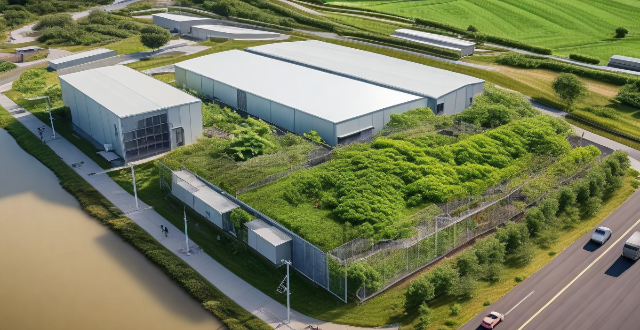
What are the most effective strategies for reducing climate loss and damage ?
This article outlines key strategies for reducing climate loss and damage, including transitioning to renewable energy sources, improving energy efficiency, promoting afforestation and reforestation, adopting sustainable agriculture practices, reducing waste and increasing recycling efforts, exploring carbon capture and storage technologies, and fostering international cooperation and policy initiatives.

What role does waste reduction play in sustainable development ?
The article discusses the importance of waste reduction in sustainable development. It highlights the environmental, economic, and social benefits of waste reduction, including conservation of natural resources, protection of ecosystems, climate change mitigation, cost savings, job creation, innovation and efficiency, public health, education and awareness, and community engagement. The article emphasizes that waste reduction is an essential component of sustainable development and encourages individuals, businesses, and governments to take action to reduce waste.

How can governments promote waste reduction initiatives among citizens ?
Governments can promote waste reduction initiatives among citizens through education campaigns, incentives, regulations, community involvement, research and development, and public infrastructure investments. These strategies aim to raise awareness, encourage sustainable practices, enforce compliance, engage communities, fund innovative solutions, and establish efficient waste management systems.

What are some innovative ways to recycle electronic waste ?
Innovative Ways to Recycle Electronic Waste Electronic waste, or e-waste, is a significant environmental concern that can be addressed through various innovative recycling methods. These include repurposing old devices, upcycling components, recycling plastics, energy recovery, designing for disassembly, regulation and education, and research and development. By adopting these strategies, we can reduce the amount of e-waste in landfills and lessen its environmental impact.
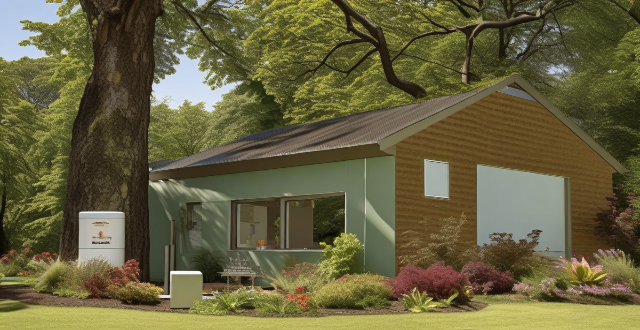
How can individuals contribute to reducing the effects of climate change ?
The article discusses ways individuals can contribute to reducing the effects of climate change, including adopting renewable energy sources, reducing carbon footprint, conserving water, reducing waste and recycling, sustainable living practices, advocacy and education, and energy efficiency in homes.

Can circular economy policies help reduce waste and pollution ?
Circular economy policies can significantly reduce waste and pollution by promoting reuse, recycling, and cleaner production methods. These policies incentivize businesses to design products that are easier to maintain and recycle, support sustainable business models like leasing and Product as a Service (PaaS), and encourage consumers to make environmentally friendly choices. Through such measures, the need for new raw materials decreases, energy consumption is reduced, and waste is diverted from landfills, all of which contribute to lower emissions and a cleaner environment.

How do clean production technologies help reduce waste and pollution ?
Clean production technologies are vital in reducing waste and pollution. They achieve this through energy efficiency, resource efficiency, improved waste management, pollution control, and a holistic approach to sustainability via life cycle assessment. By implementing these technologies, industries can operate in a more sustainable manner, minimizing their environmental impact.

How does a circular economy contribute to waste reduction and resource conservation ?
The circular economy model promotes waste reduction and resource conservation by advocating for the reuse and recycling of materials, reducing raw material extraction, extending product lifecycles, treating waste as a resource, encouraging the sharing economy and digital services, improving resource efficiency, promoting biodegradable and renewable resources, raising consumer awareness, and supporting regulatory policies. This approach challenges traditional linear economic models and offers a sustainable solution to address environmental issues related to waste and resource depletion.

Is it possible to achieve a zero-waste lifestyle ?
The text discusses the possibility of achieving a zero-waste lifestyle, which involves minimizing the amount of waste produced in daily life. It outlines three key steps: reduce, reuse, and recycle. Reducing waste can be done by buying only what is needed, choosing products with minimal packaging, and using reusable containers. Reusing items can involve donating or selling unwanted items, as well as repurposing them. Recycling involves separating recyclable materials from non-recyclable waste and sending them to facilities where they can be processed into new products. While achieving a completely zero-waste lifestyle may not be entirely feasible, making small changes in daily habits can significantly reduce waste production.
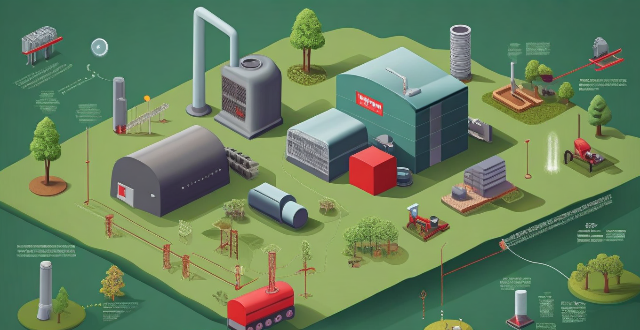
How does green technology help the environment ?
Green technology, or clean technology, includes various techniques and products designed to reduce environmental harm. Its benefits include reducing greenhouse gas emissions, conserving natural resources, protecting ecosystems, reducing waste, and promoting sustainable practices. These technologies help minimize pollution, save energy, preserve water, maintain biodiversity, and encourage recycling and responsible waste management. As green technology advances, its positive impact on the environment is expected to increase.

How do I properly dispose of electronic waste ?
The text provides a comprehensive guide to the proper disposal of electronic waste (e-waste), which is crucial for environmental preservation and public health. The guide explains what e-waste is, why it's a problem, and outlines steps for responsible e-waste management, including reducing consumption, reusing devices, recycling them through various methods, disposing of hazardous materials responsibly, and raising awareness about the issue. By following these steps—reduce, reuse, recycle, responsibly dispose, and raise awareness—individuals and communities can significantly mitigate the negative impacts of e-waste and make a difference.

How do cultural factors influence waste reduction practices ?
The text provides an overview of how cultural factors influence waste reduction practices, highlighting the role of cultural attitudes, social norms, education, religious beliefs, economic conditions, and technological advancements in shaping waste management behaviors. It emphasizes that respect for resources, consumerism vs. conservatism, composting traditions, public awareness campaigns, community cleanliness standards, taboos around waste, environmental education, family values, role models, stewardship principles, reincarnation beliefs, interconnectedness philosophies, affordability of disposable products, recycling costs, government incentives, access to technology, digital awareness campaigns, and innovative product design are all aspects of culture that can significantly impact waste reduction efforts. By understanding these cultural dynamics, more effective strategies for sustainable living can be developed globally.

Can waste reduction lead to cost savings for individuals and companies ?
Waste reduction can lead to cost savings for both individuals and companies by minimizing waste in various aspects of daily life and business operations. For individuals, reducing food waste through meal planning and proper storage, minimizing energy consumption with energy-efficient appliances and water conservation, and reducing unnecessary spending through secondhand shopping and repairing instead of replacing can result in significant cost savings. Companies can also benefit from waste reduction by optimizing production processes with lean manufacturing techniques and resource recovery, improving logistics and supply chain management through just-in-time inventory and efficient packaging, and enhancing energy efficiency with green building design and employee training. Overall, waste reduction is a crucial aspect of sustainable living and business practices that can lead to cost savings while contributing to environmental sustainability.

What are the most effective strategies for waste reduction in households ?
Effective Strategies for Waste Reduction in Households 1. Reduce: Buy only what you need, choose products with less packaging, and use reusable items. 2. Reuse: Donate or sell unwanted items and repurpose old items for new uses. 3. Recycle: Separate recyclable materials, know what can be recycled locally, and compost organic waste. 4. Avoid Single-Use Plastics: Bring your own reusable bags and use refillable containers. 5. Educate Yourself and Others: Learn about waste reduction and share tips with friends and family.

Are there any laws or regulations aimed at promoting waste reduction ?
Laws and regulations aimed at promoting waste reduction include extended producer responsibility (EPR), landfill taxes and bans, recycling targets, packaging regulations, local ordinances and programs such as curbside recycling and composting, waste reduction education campaigns, pay-as-you-throw programs, and international agreements like the Basel Convention. These measures encourage sustainable practices, reduce waste production, and promote recycling.

Are there any laws or regulations regarding electronic waste disposal in my country ?
Electronic waste disposal is a critical issue that involves environmental protection, resource recycling, and sustainable development. Many countries have enacted specific laws and regulations to manage the proper disposal of electronic waste, aiming to reduce its negative impact on the environment and promote responsible recycling practices. These include extended producer responsibility, bans on exporting hazardous waste to developing nations, mandatory recycling targets, and take-back programs. Additionally, local authorities may implement further regulations such as collection points, disposal fees, prohibitions on landfill disposal, and public awareness campaigns. Consumers play a vital role in ensuring e-waste is disposed of responsibly by researching local disposal options, utilizing take-back programs, donating or selling old devices, properly recycling unusable devices, and reducing purchases. Adhering to these laws and regulations and following best practices contributes significantly to reducing the impact of e-waste on our planet.

How can businesses contribute to reducing climate loss and damage ?
Businesses have a crucial role in mitigating climate loss and damage. Here's how they can contribute significantly: 1. **Adopting Sustainable Practices** - Reducing Energy Consumption - Waste Management - Water Conservation 2. **Investing in Clean Technology** - Research and Development - Green Infrastructure 3. **Promoting Sustainable Supply Chains** - Eco-friendly Sourcing - Partnership with Green Companies 4. **Supporting Environmental Initiatives** - Sponsoring Clean Projects - Education and Awareness 5. **Engaging in Carbon Offsetting** - Carbon Credits - Reforestation Projects 6. **Advocating for Policy Changes** - Lobbying for Green Policies - Collaborating with Governments 7. **Developing Circular Economy Models** - Zero Waste - Reusable Products

How can education contribute to reducing carbon footprint ?
Education plays a pivotal role in promoting environmental sustainability by raising awareness, encouraging sustainable practices, and empowering future leaders. It can contribute to reducing carbon footprints through curriculum integration, real-world examples, interdisciplinary projects, community outreach, media campaigns, partnership with NGOs, implementing green initiatives in schools, teaching practical skills, developing critical thinking, nurturing eco-advocacy, and preparing students for careers in environmental policy making. By focusing on these aspects, education can significantly contribute to reducing carbon footprints and paving the way for a more sustainable future.

Can reducing meat consumption lower my carbon footprint ?
Reducing meat consumption can lower your carbon footprint by decreasing the demand for livestock, which produces greenhouse gases and requires significant resources. This dietary change also conserves water and land, improves health, and supports a more sustainable food system.

What role does renewable energy play in reducing carbon footprint ?
Renewable energy is crucial in reducing carbon footprint as it is obtained from natural resources and does not emit harmful greenhouse gases. It benefits the environment, economy, and society by mitigating climate change, reducing dependence on imported fuels, and providing affordable energy to remote areas. Solar, wind, hydro, geothermal, and biomass energy are types of renewable energy sources. However, challenges such as cost, intermittency, storage, and grid integration need to be addressed. Continued investment and innovation can make renewable energy more accessible and affordable for everyone.

How does waste reduction affect the waste management industry ?
Waste reduction significantly impacts the waste management industry by affecting collection, transportation, processing, and disposal aspects. It leads to cost savings, optimized routes, smaller vehicles, lower energy consumption, extended landfill lifespan, increased efficiency, job losses, market opportunities, reduced greenhouse gas emissions, conservation of natural resources, improved air and water quality, increased public awareness, community engagement, and a healthier environment.

How can businesses implement waste reduction practices in their operations ?
This topic discusses the importance of waste reduction in businesses and provides strategies for implementing sustainable practices. It emphasizes the benefits of conducting a waste audit, adopting eco-friendly packaging, optimizing manufacturing processes, promoting reuse and repair, training employees in waste reduction, and partnering with green suppliers. The goal is to contribute to a more sustainable future while also benefiting financially through cost savings and efficiency gains.

How does electronic waste affect the environment if not recycled ?
Electronic waste, or e-waste, refers to discarded electronic devices such as computers, smartphones, and televisions. Improper disposal of these items can have severe consequences for the environment, including the release of toxic chemicals into soil, water, and air. These chemicals can cause health problems for both humans and wildlife. Non-recycled e-waste also occupies valuable landfill space and contributes to soil contamination, water pollution, and air pollution. Proper recycling of electronic waste is essential to protect the environment and human health, conserve natural resources, and minimize the impact on landfills.